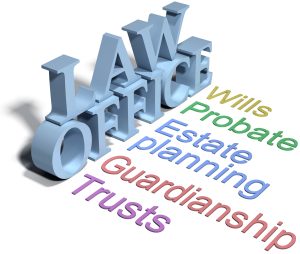 The settlement of a New York estate is comprised of a number of stages. At the outset, a determination must be made as to whether a decedent had a Last Will and Testament or died intestate. This is important since the procedures to obtain Letters Testamentary in a probate proceeding, or Letters of Administration in an intestate administration proceeding, are different. While this initial process appears uncomplicated, there are many cases where the determination as to whether a decedent left a Last Will to be probated is unclear.
The settlement of a New York estate is comprised of a number of stages. At the outset, a determination must be made as to whether a decedent had a Last Will and Testament or died intestate. This is important since the procedures to obtain Letters Testamentary in a probate proceeding, or Letters of Administration in an intestate administration proceeding, are different. While this initial process appears uncomplicated, there are many cases where the determination as to whether a decedent left a Last Will to be probated is unclear.
First and foremost, a search needs to be performed to locate the original Will. It may be that the document, if there is one, was retained by a decedent at home or with an attorney. Sometimes, the only paper to be found is a copy of a Will. This presents problems since it is very difficult to probate a copy of a Will. Surrogate’s Court Procedure Act Section 1407 entitled “Proof of lost or destroyed will” contains specific rules regarding the probate of Wills which are lost.
Assuming that the issue regarding the appointment of an executor or administrator is resolved, the actual day-to-day management of the estate needs to be accomplished. In this regard, assets need to be identified and collected. Also, estate debts, claims and taxes must be dealt with and satisfied. Depending upon the estate, some assets may present complicated issues, particularly where a decedent had various business or other valuable interests. Valuation issues may arise if the estate is subject to Federal or New York State estate tax. The New York Probate Lawyer Blog has published numerous articles concerning estate settlement.
 New York Probate Lawyer Blog
New York Probate Lawyer Blog









